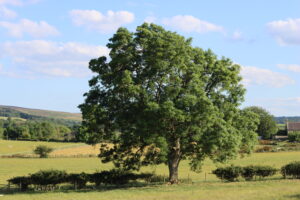Government commits to biodiversity net-gain on new infrastructure projects.
Responding to the Dasgupta Review on The Economics of Biodiversity, which was published earlier in the year, the government has said they agree with the findings of the report – that biodiversity sustains economies, livelihoods and well-being.
On the back of this, the government has said that new nationally significant infrastructure projects in England will as a result need to provide a net gain in biodiversity and habitats for wildlife – through an amendment to be made to the Environment Bill.
As part of this ambition, the government has said that HS2 – which has been criticised in the past for its damaging ecological impacts – will aim to deliver a net gain in biodiversity on its Crewe-Manchester leg.
HS2 minister Andrew Stephenson said: ‘As a high-speed electric railway, offering a low carbon alternative to car journeys, road freight and domestic flights, HS2 will be the spine of our modern, greener transport network.
‘Increasing our ambitions with a new target of delivering a net-gain in biodiversity on the Crewe-Manchester leg underlines our commitment to building back greener as we level up this country, enhancing our environment for the future.’
Tanya Steele, chief executive at WWF added: ‘This is a step in the right direction, with some important building blocks being put in place, but it comes at a time when we need giant leaps to transform the economic and financial systems that are fuelling the global environmental crisis.
‘If this government is serious about delivering for people and planet, it must strengthen the flagship Environment Bill to include a clear legal commitment to halt the decline of species and to restore nature – at home and overseas – by 2030.
‘We also need to see Government embedding environmental considerations into every decision it makes, through for example applying a net-zero test to public spending, so the economy is geared towards restoring nature, not destroying it.’













